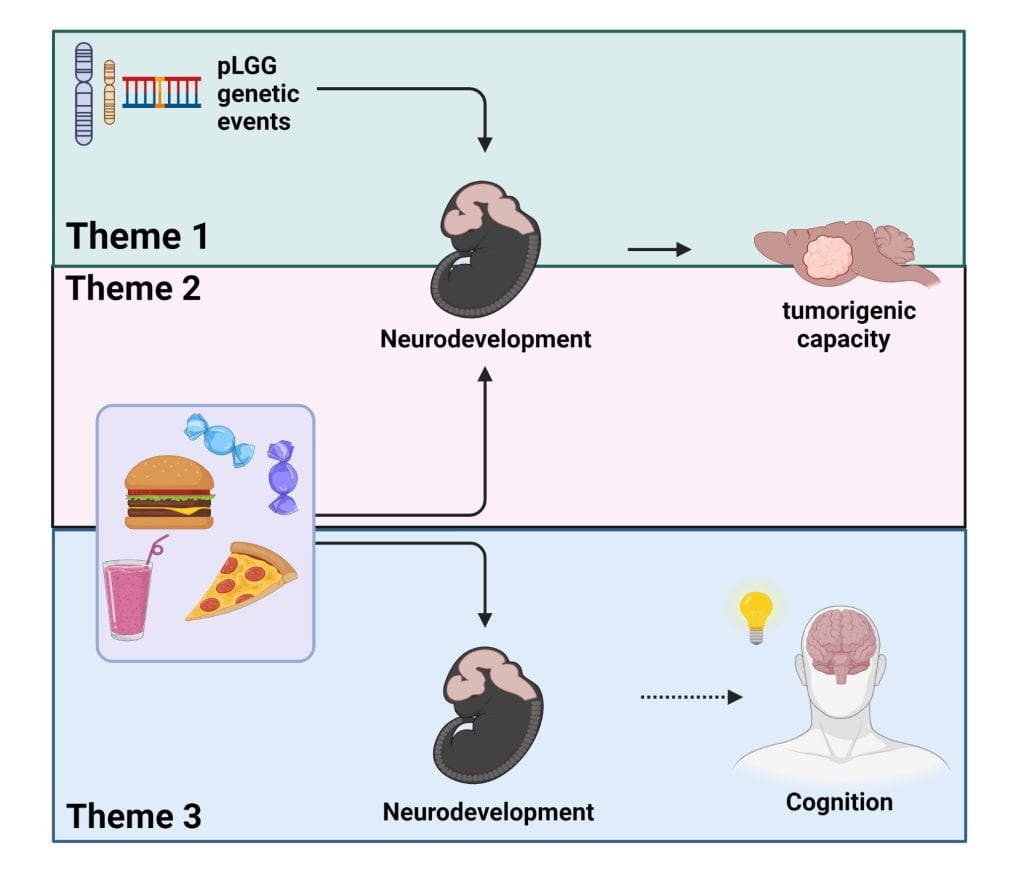Welcome to the Brossier lab
Patients with the genetic disorder Neurofibromatosis Type 1 (NF1) are at increased risk for multiple neurodevelopmental abnormalities, including brain tumor development and impaired cognition.
In the Brossier lab, we are interested in identifying how genetic, neurodevelopmental and environmental factors modulate risk of developing these phenotypes in NF1, as well as in the broader pediatric population. We utilize murine models of NF1 as platform for investigation, with an eye towards developing new patient risk assessment strategies and identifying new targets for therapeutic intervention. Using this approach, we have identified maternal exposure to an obesogenic Western-style diet as a risk factor for glioma formation and growth.
Projects in the lab revolve around three major themes: (1) how neurodevelopmental factors (cell type, age) affect response to oncogenic mutation, (2) how environmental factors modulate risk of brain tumor formation, and (3) how environmental factors modulate neurodevelopment relevant to cognition. Current projects include:
- Theme 1: Determining how brain location influences the effect of sporadic glioma-associated mutation on neural stem cell properties, MAPK pathway activity and tumor formation.
- Theme 2: Determining the mechanism by which maternal obesogenic diet modulates neurodevelopment and increases tumor penetrance.
- Theme 3: Determining how maternal obesogenic diet exposure affects oligodendroglial development and plasticity in NF1, relevant to cognitive phenotypes in patients.


Our funders…
The Brossier lab is funded through:
Neurofibromatosis Therapeutic Acceleration Program
Department of Defense
St. Louis Children’s Hospital Foundation
Prior funding sources include Alex’s Lemonade Stand, Hyundai Hope on Wheels, the Institute of Clinical and Translational Sciences and the Eunice Kennedy Shriver National Institute of Child Health and Human Development.